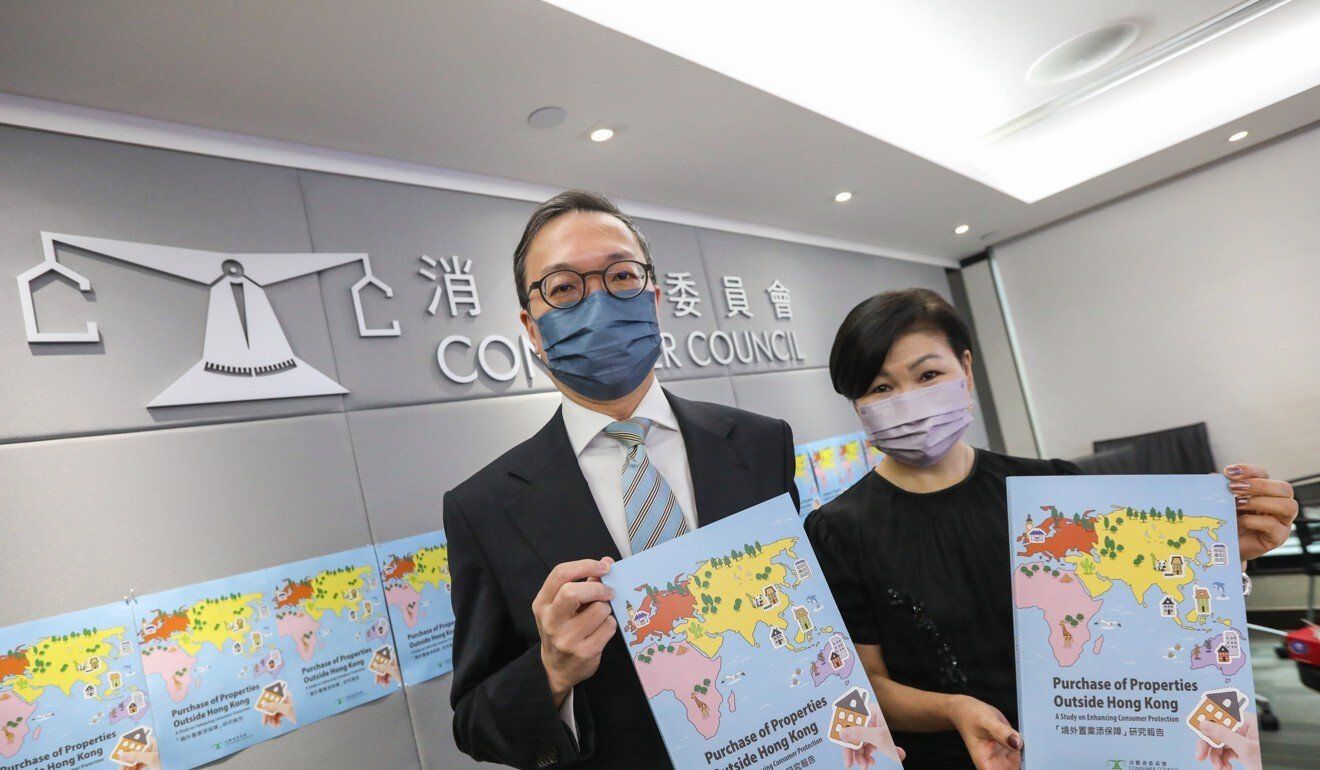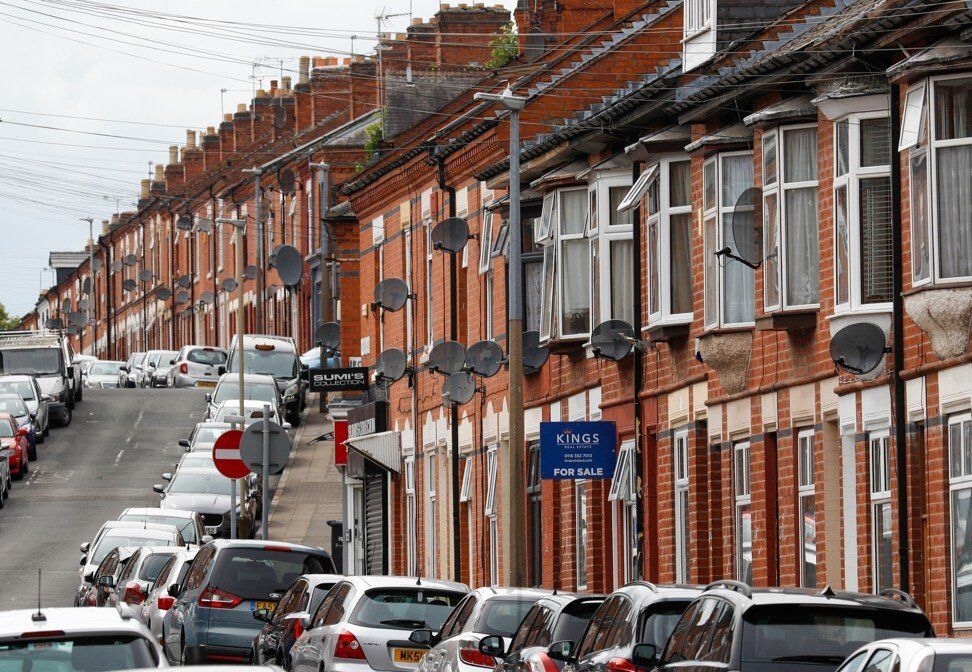Hong Kong News

Bad practices ‘all too common in Hong Kong’s overseas property market’
To this day, Lee still rues the HK$1 million (US$128,600) she invested in a new residential property in the United Kingdom in 2014.
An overseas property neophyte at the time, Lee, who manages a consultancy and declined to give her full name, said she fell victim to the unprofessional tactics of an agent in Hong Kong while negotiating the purchase of the 300 sq ft home in Leeds.
She said the agent claimed the £80,000 investment (US$11,000) would pay for itself in just three years if it was rented out to students – a carefree proposition, they maintained, given a management agency would handle everything for her.
The agent, however, failed to warn her that properties’ management agencies changed often and easily, and their appointment was beyond investors’ control.
The firm taking care of Lee’s property was subsequently replaced three times over the years, resulting in higher fees and more expenses when it came to making repairs.
 Properties in Britain accounted for 21 complaints received by the city’s consumer watchdog.
Properties in Britain accounted for 21 complaints received by the city’s consumer watchdog.
“Mostly the repair fees are around a few hundred pounds sterling. That’s a lot when they have something to repair every three to four months,” Lee said.
As it turned out, she added, the property’s location was also not as popular among students as the agent had led her to believe, with the home sitting deserted some semesters.
Rising complaints from Hongkongers like Lee who were left worse off after purchasing properties overseas fuelled calls on Thursday from the city’s consumer watchdog for authorities to require agents dealing in such transactions to be licensed.
It also urged greater scrutiny of often misleading promotional materials and the introduction of a cooling-off period of at least seven days during which deposits can be recouped.
The Consumer Council said in its 163-page report that the number of complaints stemming from the sale of new homes outside Hong Kong had jumped 60 per cent since 2017, to 56 last year.
Between 2017 and August this year, uncompleted residential properties in Thailand were the source of the greatest number of complaints, with 55. Another 45 complaints related to properties in mainland China, 33 were in Britain, 21 were in Australia and 25 were in other markets.
Those who deal in properties located outside the city are not required to obtain an agent or salesperson’s licence from the Estate Agents Authority, putting any misconduct on their part beyond its reach.
 Consumer Council chairman Paul Lam (left) presents the body’s report on overseas property agents on Thursday.
Consumer Council chairman Paul Lam (left) presents the body’s report on overseas property agents on Thursday.
Consumer Council chairman Paul Lam Ting-kwok said that agents who dealt with overseas properties often knew very little about the developments they were selling, and many of their advertisements included dubious claims about returns on investments.
“If [agents] decide to state material aspects of the property, then you have to ensure that the information provided is correct,” Lam said.
Peter Chan, a chartered engineer in the UK who provides property surveying services, said he witnessed a growing number of Hongkongers investing in the country’s residential real estate market, but in many cases the properties were in poor condition.
“For example, the rug was not underlaid, making the house colder during winter. The bathroom has the risk of water penetration in the bricks. Not all furniture was included, as the promotion materials had shown. We even found termites in the walls,” he said. “These are the things you can’t see through marketing materials such as pictures or videos.”
He said investors were ill-informed about the basic details of a property, such as how it was constructed and whether it was at risk of high repair costs.
On the question of greater regulation, the government appears to be at odds with the agents themselves.
The Transport and Housing Bureau said the proposed measures to rein agents would not resolve issues concerning sellers and developers or the properties themselves. Requiring agents to be licensed in Hong Kong, it maintained, would also not address the risks buyers faced in other jurisdictions.
 A British engineer and surveyor says many of the properties on offer in
the UK come with hidden issues that buyers are not aware of.
A British engineer and surveyor says many of the properties on offer in
the UK come with hidden issues that buyers are not aware of.
But the international real estate services firm JLL welcomed the watchdog’s suggestions for greater consumer protections, saying that such policies could help increase the transparency of the market and ensure the quality of service offered by agents.
Mandy Wong, head of international residential property at JLL in Hong Kong, said the firm had previously suggested the Estate Agents Authority regulate overseas sales.
“JLL is a licensed estate agent. All of our salespersons conducting the sale of overseas or non-local properties must comply with the Estate Agents Ordinance. All overseas properties that we launched in Hong Kong have also gone through the due diligence process, ensuring the rights of buyers are protected,” she said.
A JLL market analysis of 784 property exhibitions held from January to September found that 15 per cent of agents were licensed, while 85 per cent were not.
Cubie Chan, managing director of Swan Knights, which sells properties in the UK, Thailand and Australia, told the Post that the company itself did not have a licence, but eight of its 10 individual agents did.
“We welcome the suggestions and would ask remaining agents to get a licence as soon as possible,” Chan said. “We often see people say they were deceived by property agents. Hopefully, the suggested regulation can ‘eliminate’ the underqualified agents and hence restore the reputation of the industry.”
The major property agencies Centaline and Midland Global also said they supported the proposed regulations, adding that more stringent rules should be put in place for advertisements, especially those that mentioned rental guarantees and investment returns.
They also suggested a mandatory cooling-off period during which the consumer could get back their reservation fees if they decided not to proceed with the purchase.











